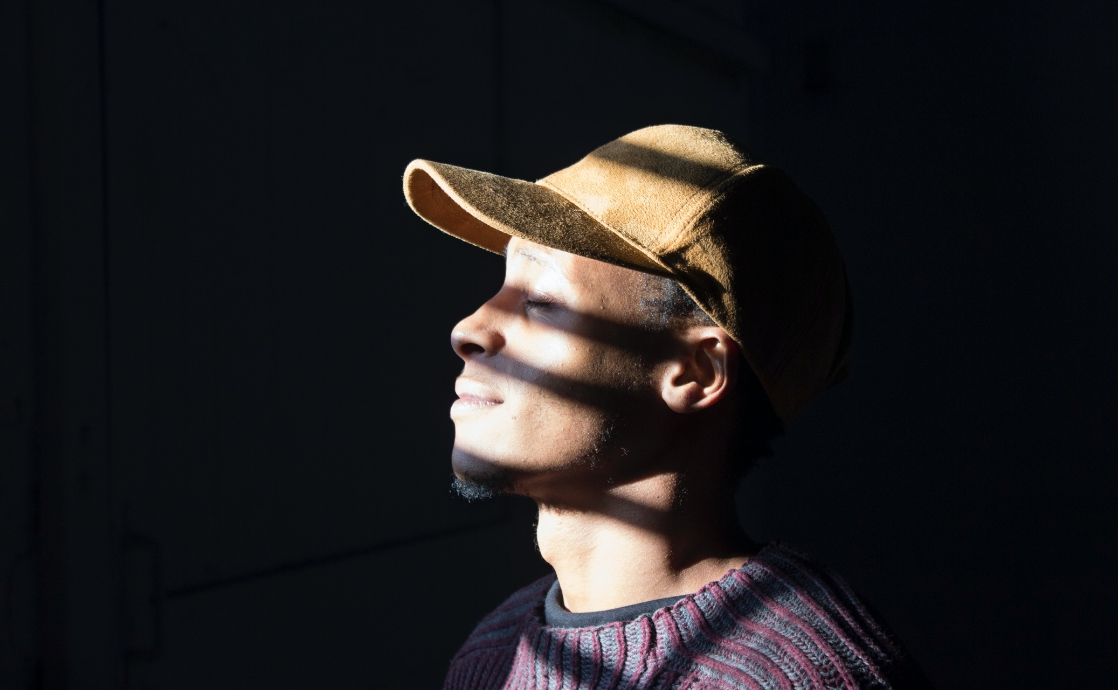The views expressed in our content reflect individual perspectives and do not represent the authoritative views of the Baha'i Faith.
You’ve probably heard these encouraging motivational phrases at some point in your life – “Be strong and have faith. Keep the faith. Don’t lose faith” – but what do they really mean?
What makes faith so important in our lives – and what should we actually have faith in?
Faith, like knowledge and hope, and love, is one of the foundations of human existence. Without faith in ourselves and a sense of faith in the future, life isn’t worth much.
Beyond those kinds of faith, when we climb to the highest rung on that ladder — faith in a Creator — a metamorphosis can take place, just like a caterpillar transforms into a beautiful monarch butterfly.
RELATED: 5 Reasons You Gotta Have Faith
But for the soul, hanging on to the cord of steadfast faith is rarely easy. The changes and chances of life can cause us to lose faith – in ourselves, in the future, in God. How do we manage this risk?
Faith as Trust
Faith can mean, at its most basic level, trust in a person or thing. Trustworthiness, as defined in the Baha’i writings, is definitely a divine virtue – in his book The Secret of Divine Civilization, Abdu’l-Baha listed it among the true “attributes of the people of faith:”
… the attributes of the people of faith are justice and fair-mindedness; forbearance and compassion and generosity; consideration for others; candor, trustworthiness, and loyalty; love and loving-kindness; devotion and determination and humanity.
Our earliest experience of trust in another human being occurs during the first few days of life. The newborn immediately senses the love of the mother and starts to trust her. Have you noticed that in crisis – it could be pain, hunger, or fear – that a newborn automatically turns for comfort and seeks relief in mother’s arms? As faith in the mother grows, the young one gradually learns to trust others, and faith is extended further, starting with the child’s father and siblings.
When this faith and trust does not exist, what happens? The child becomes reclusive, shy, and without much hope or faith in the future. Just as oxygen and water are essential for physical existence, our emotional well-being depends upon faith. Just imagine parents and children living with little or no faith between each other – such a family will surely be dysfunctional and may even disintegrate. We see similar effects on a larger social scale, too, when trust is in short supply in any group of people or in any nation.
This kind of trusting faith arises out of knowledge and assurance, which is a form of love – all key emotional building blocks for the lives of individuals, families, societies, and the world. Would you allow a surgeon to perform a heart transplant on you if you knew he was incompetent? Would a construction worker climb a scaffold known to be unsafe? Obviously not! Faith has to exist first. Faith doesn’t only mean religious faith, and faith doesn’t just cement relationships – it is fundamental to our survival.
Faith as a Code of Ethics and a Belief in the Numinous
In any group of people, a shared commitment and adherence to a common set of values and ethics helps to cement trust in the integrity of the group’s members, and in the integrity of the group itself.
Systems of religious belief, like the Baha’i Faith, have this kind of ethical and value-based coherence. Membership in a unified, trusting religious community can provide comfort and a sense of belonging, but doesn’t necessarily include an awareness of God.
RELATED: Faith and the Limits of Human Logic
That kind of faith, however, can gradually expand to mean belief in an existence beyond what the physical senses can perceive, such as acceptance of a Creator no one has seen. Faith in a Supreme Being is born of an intimate relationship between the soul and that invisible spiritual reality. As the relationship grows, so do one’s inner powers. According to Abdu’l-Baha, “The first sign of faith is love.”
In human relationships we deal with visible faces, but in a divine engagement we travel into the unknown. Moreover, this is a journey for which we must take personal responsibility. The Baha’i teachings say “… the faith of no man can be conditioned by anyone except himself.” In other words, our beliefs require us to be accountable for every action we take. So faith requires trust.
Consider the life of a blind person. For her, tasks sighted people take for granted become difficult, even dangerous. Walking to a neighbor’s house, she could run into objects or other people, trip over cracks in the sidewalk, fall down steps, or even walk out in front of an oncoming car. Fortunately, she can learn to deal with these obstacles in a variety of ways. For example, she could get a guide dog – but just any dog won’t do. It must be a dog that has been carefully trained, and then she must learn to work with and trust her new canine friend. She learns to trust her guide dog through experience: it leads her safely through her day. Thus, knowledge leads to trust, which blossoms into faith.
This metaphor describes our spiritual life. Sometimes our inner vision is blurry, obscured, or even non-existent. We may stand at a fork in the road, unable to clearly see which branch to take, or we may be called upon to undertake some task without knowing exactly where it will lead. With faith and trust in the ultimate benevolence of the Creator, we can forge ahead in life, confident that it will take us where we most need to go.
You May Also Like
Comments

















Can you please provide the source for the first quotation?
I can't find it in the Writings.